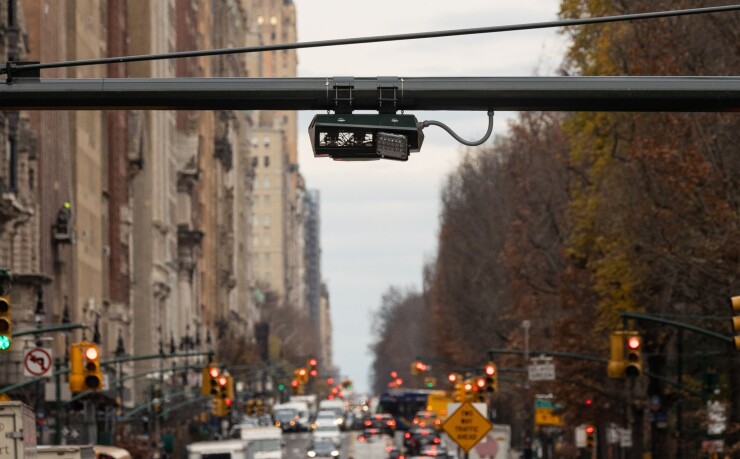New York Gov. Kathy Hochul is considering delaying the congestion pricing plan to charge motorists driving into midtown Manhattan and potentially replacing it with a tax on New York City businesses, according to a person familiar with the situation who requested anonymity because the proposal hasn't been made public.
The tolling plan, set to begin June 30, would be the first in the US. It is expected to bring in $1 billion a year that would help modernize the New York Metropolitan Transportation Authority's more than 100-year old transit system that's been hit by episodes of heavy rain and severe flooding. The money was pegged to finance subway signal upgrades to reduce train delays, new electric buses and extend the Second Avenue subway to Harlem.
The potential shift away from the tolling initiative would be a relief for drivers, most of whom would pay $15 to enter Manhattan's central business district, which runs from 60th Street to the bottom of the island. It's also a sudden change — virtually all of the tolling gantries are already installed on Manhattan streets and ready to charge drivers.

The congestion-pricing plan is also aimed at reducing traffic and improving air quality. Hochul's possible decision to postpone it was reported earlier by Politico and the New York Times. Part of the consideration to delay stems from concern that the implementation would hurt Democrats in competitive House of Representatives races this year,
While Hochul weighs her options, a federal judge is expected to rule on whether to allow the plan to move forward or to delay it and send it back to the Federal Highway Administration for further review of its environmental impact.
Representatives for Hochul and the MTA didn't immediately respond to requests for comment.
State lawmakers last year boosted the payroll tax on certain New York City businesses to help raise additional revenue for the MTA as subway ridership has yet to match pre-pandemic levels. Average weekday subway usage is about 70% of 2019 ridership.
It's unclear if an alternative levy would raise an equal amount of money for the Metropolitan Transportation Authority, which runs New York City's subways, buses and commuter rail lines. The plan was for the
The MTA has cited uncertainty about the implementation of congestion pricing
Delaying or canceling congestion pricing without another funding source would put a massive hole in the MTA's current multi-year capital plan. The transit provider, the largest in the nation, will also need new funding in its next capital budget for 2025—2029.





